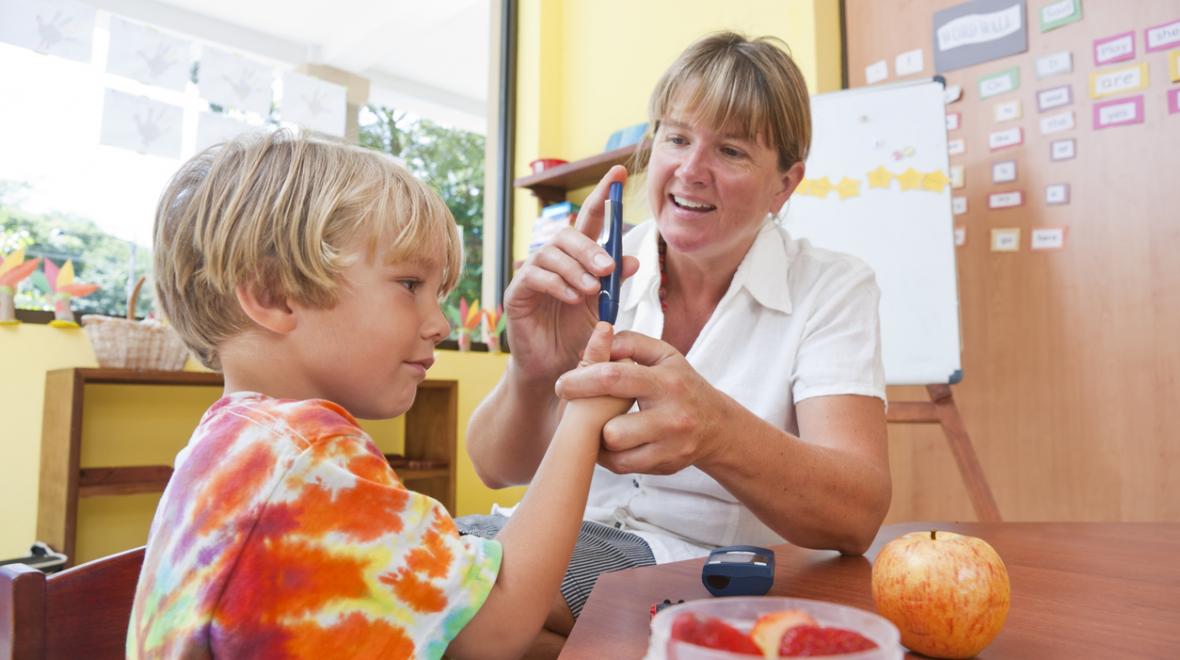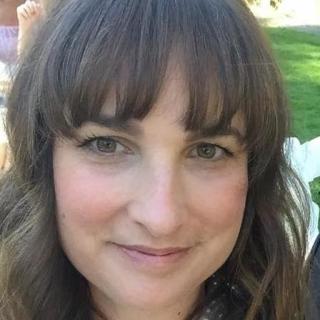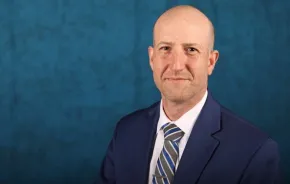
Two weeks ago, my 7-year-old daughter was excitedly anticipating a Friday night sleepover at my sister’s house. Instead, she spent the weekend as a patient at Seattle Children’s Hospital, where she was unexpectedly diagnosed with Type 1 diabetes.
To say this has been overwhelming for our family is an understatement. Going from having a healthy child to being told she has a life-threatening and lifelong condition in a matter of hours is a tremendous thing to process. We had no experience with Type 1 diabetes and what that care entails.
Receiving training at the hospital served as a crash course in how to keep our child alive. The team at the hospital painted a complicated picture filled with finger pokes, insulin calculations and injections, ways to treat low and high blood sugar, and new dietary guidelines to follow. It was clear her life and ours would never be the same.
Receiving training at the hospital served as a crash course in how to keep our child alive.
Coming home, we were encouraged to get her back to school and her routine as quickly as possible. Since Type 1 diabetes is a relatively common childhood condition, we assumed Seattle Public Schools (SPS) would be a beacon of information about how to re-integrate our daughter back to school safely. Instead, the district put this responsibility at our feet and relied on our resourcefulness and the generosity of the teachers and staff at our school to figure out a plan of care for our daughter.
Like most public schools in our district and state, my daughter's school doesn’t have a full-time nurse. In response to our daughter’s diagnosis, SPS recommended that we switch schools to one with a full-time nurse, taking her away from friends, teachers and an environment she's familiar and comfortable with in the midst of this major life transition. She’s also at an option school with a language immersion program, so we’d be forced to leave that behind.
The alternative the district presented was to remain at our school, but to do that the responsibility for her care would fall to us and the school staff on the 3–4 days per week there is no nurse on site. We were told we’d have to identify volunteers on the staff who were willing to provide care in our absence, and the district was very clear we could not “coerce” anyone into this, since this care is entirely voluntary.
We’ve been extremely lucky that our school’s principal and staff have stepped up to provide the support the district has not. But even with their help, my husband and I had to arrange for a private nurse to train the volunteers and step away from our own jobs every day during the last two weeks to be at school to assist while the staff gets comfortable.
We’ve been extremely lucky that our school’s principal and staff have stepped up to provide the support the district has not.
Most people reading this won’t have a child with Type 1 diabetes, so it may feel like this lack of support from the district on this issue will never impact you or your child. But consider the precedent this sets and the liability the district has shifted to our already underpaid and overworked teachers and school staff. The front office staff at our schools are fielding first aid needs, concussion assessments, administering inhalers and epipens, and serving as the front line for a host of other illnesses and injuries that crop up throughout the school day across our city and state.
My daughter is one of the lucky ones: She’s going to get the care she needs without having to change schools. Other students with special needs from families with lower incomes, who don’t have the flexibility to miss work, who don’t speak English as their first language, or who have parents or staff who aren’t as engaged are far more likely to suffer.
SPS’s response to student diagnoses — telling Seattle families with children who have serious medical conditions they are essentially on their own unless they are willing to uproot their child’s lives by moving them into a school with a full time nurse — is deplorable. I am shocked and appalled to learn that this is accepted as the status quo in our city.
I am shocked and appalled to learn that this is accepted as the status quo in our city.
It’s the equivalent of calling 911 when your house is on fire and being told your options are to either move to a new home that has firefighting services available or knock on your neighbors’ doors to see if they will volunteer to help you put it out yourself. Our kids deserve more than that.
Editor's note: ParentMap reached out to SPS for comment on Wednesday. At press time, we have not received a comment.











